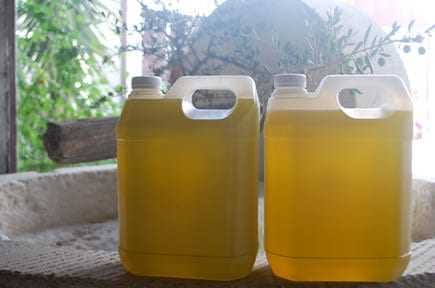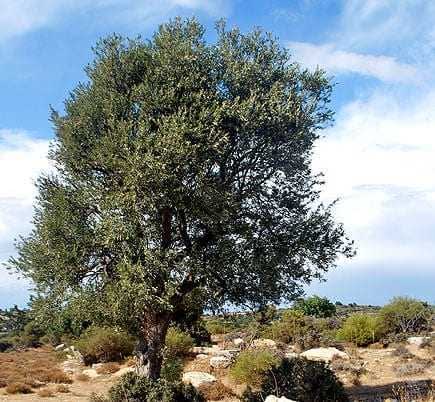
Every fall, just like his neighbors in his Cypriot village of Kivissili, Michalis Chrisidou dusts off a pair of clear plastic tanks. His four-litre and twenty-litre containers serve a very special purpose. They will carry freshly pressed bulk olive oil, a supply that he says will last him the next few months.
For his small island country, locally pressed olive oil carries a significant meaning. “We use it for cooking every day. We get our supply from Cypriot olive groves and that’s it. It’s local and pure and quality,” said Chrisidou. A four-litre container costs between €20 to €25 ($26 to $32) and 20 litres cost between €80 to €100 ($104 to $130). Upon returning home, Chrisidou transfers the oil to tinted glass bottles.
In Cyprus, olive oil is rarely bought in the store because for most families either a family member or a friend produces it somewhere on the island. Some Cypriots take the time to produce it themselves with trees that they own. In fact, there are some 12,000 Cypriot families engaged in the industry. The Kyrenia, Kythrea, Solia, Lythrodhondas and Lefkara regions are known for their olive groves. However, bulk is just one part of olive oil production in Cyprus these days.
“Since entering the European Union in 2004, olive oil production in Cyprus has grown tremendously,” said Dr. Costas Gregoriou, managing director of Agro Forum LTD and an international olive cultivation and olive oil industry consultant in Cyprus.

Costas Gregoriou
Gregoriou said between the years 2004 and 2007 olive oil consumption increased from 6,800 tons to 8,200 tons per year. Now the oil consumption has been stabilized around to 9,000 tons.
The Minister of Agriculture and Natural Resources, Sophocles Aletraris said olive oil is of great importance to the country’s economy and Cypriot policies support the industry’s growth.
“The government policy brings the rural world at the heart of our actions. Recognizing the daily toil of our farmers, we have focused our policy to support the sector to meet the challenges of the common market in the European Union and the liberalization of international trade, and the problems posed by the economic crisis.”
He said the European Union Rural Development Programme which began in 2007 and runs until next year, provides measures and actions to improve the primary production and upgrading of manufacturing activity.

These programs have helped enable the modernization of presses, improve the oil extraction yields and produce better quality olive oil. Presses are operated properly and efficiently, producing olive oil with lower acidity than it used to be.
According to Gregoriou, since 1971 new varieties of olives for both table and oil productions were introduced including Koroneiki, Manzanillo, Picual and Kalamon. However, he said local producers still prefer the local Ladoelia variety which is well-adapted to Cyprus’ climate.
As the industry continues to mature, Cypriots know exactly where to go for their supply of olive oil every year, plastic bottles in hand, for everyday use.
“We see where the trees grow every day. It’s the olive oil we know,” said Chrisidou.

